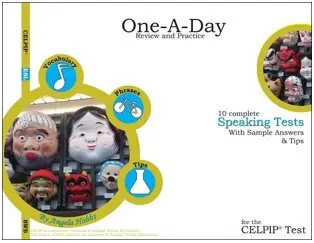
with Answers and Tips
Speaking Test Tutor
If you need some help with your speaking test preparation, give me a call: 613-614-6460, or email me: angela@ottawa-english.com, and let’s talk.
My speaking test preparation classes include some review of grammar, pronunciation, sentence structure etc. , depending on the errors that may be preventing you from achieving the score you need.
Speaking Test Practice
Are you feeling nervous about the speaking portion of your upcoming test? Are you dwelling on things that may not affect your score?
Speaking test practice is all about building building your confidence before your test. We’ll tackle those barriers and put them in perspective so that they don’t stop you from doing your very best in the test.
Typically, these practice sessions only include a minimum amount of review.
Some students book these practice sessions right before they go into their test so that everything is fresh in their minds when they start speaking to the examiner.
Please note that speaking practice will not be available during September 2024
Free Conversation Classes
You may also like to try our free conversation classes where we chat about a different topic every week in small groups.
CELPIP speaking Topics with Answers
This workbook of CELPIP speaking topics with answers contains 10 full sets of speaking practice tests. The questions are similar to those you will see on the test. It is also available as a CELPIP speaking topics with answers pdf.
Each test has 8 questions:
- Provide advice
- Talk about a personal experience
- Describe a picture
- Predict events
- Be persuasive
- Deal with a difficult situation
- Provide an opinion
- Describe an unusual situation
These CELPIP speaking topics with answers and tips were developed to give our students lots of speaking practice as they prepare responses to the CELPIP speaking test.
This book will help you develop your responses to the questions and will help you improve your vocabulary before the test. The tips help you understand what CELPIP examiners are looking for. These are things you need to include in your responses to get a high score for depth, breadth, cohesion and coherence.
The speaking topics include answers to help you develop your vocabulary when speaking about: transportation, everyday situations, government responsibilities, food, education, entertainment, recreation, shopping, people, places, art, clothes, computers, etc.
How to use the Speaking Topics with Answers Workbook
In this book, you’ll find five sections. Each section has two full practice tests followed by two full sets of sample answers with tips. These will give you an idea of how to structure your response to questions 1-8. At the end of the book, you’ll find a list of the vocabulary and phrases used in each sample answer. These are followed by two “Tick 8” pages. Here you should write down any new vocabulary and phrases along with their translation into your own language. Practice these new words every day and give yourself a tick every time you successfully recognize its meaning. After eight days, these new words and phrases should be part of your vocabulary.
It often helps to take any new words or phrases with you as you go for a walk around the house or through the park. As you walk, use your new words and phrases to describe the things you hear, smell, taste, feel, and touch. By doing this, you make these new words and phrases your own, and it becomes much easier to retrieve them when you need them in the test.
Working through the book at you own pace allows you to focus on specific content and vocabulary that may come in very handy when you get to the test.
A Good Way to Practice your Speaking
There are many ways to practice your responses, but one of the best is to talk to a mirror while recording your responses. That way, you can listen to your presentation and identify any word endings that you may be missing, often those missing word endings result in a lower test score. Firstly, listen for tense endings on words, especially that third person ‘s’ or the past tense ‘d’. Secondly, listen for plural noun endings. Thirdly, listen for missing verbs, particularly with tenses that use participles. And finally, listen for errors that you know you have a tendency to make!
